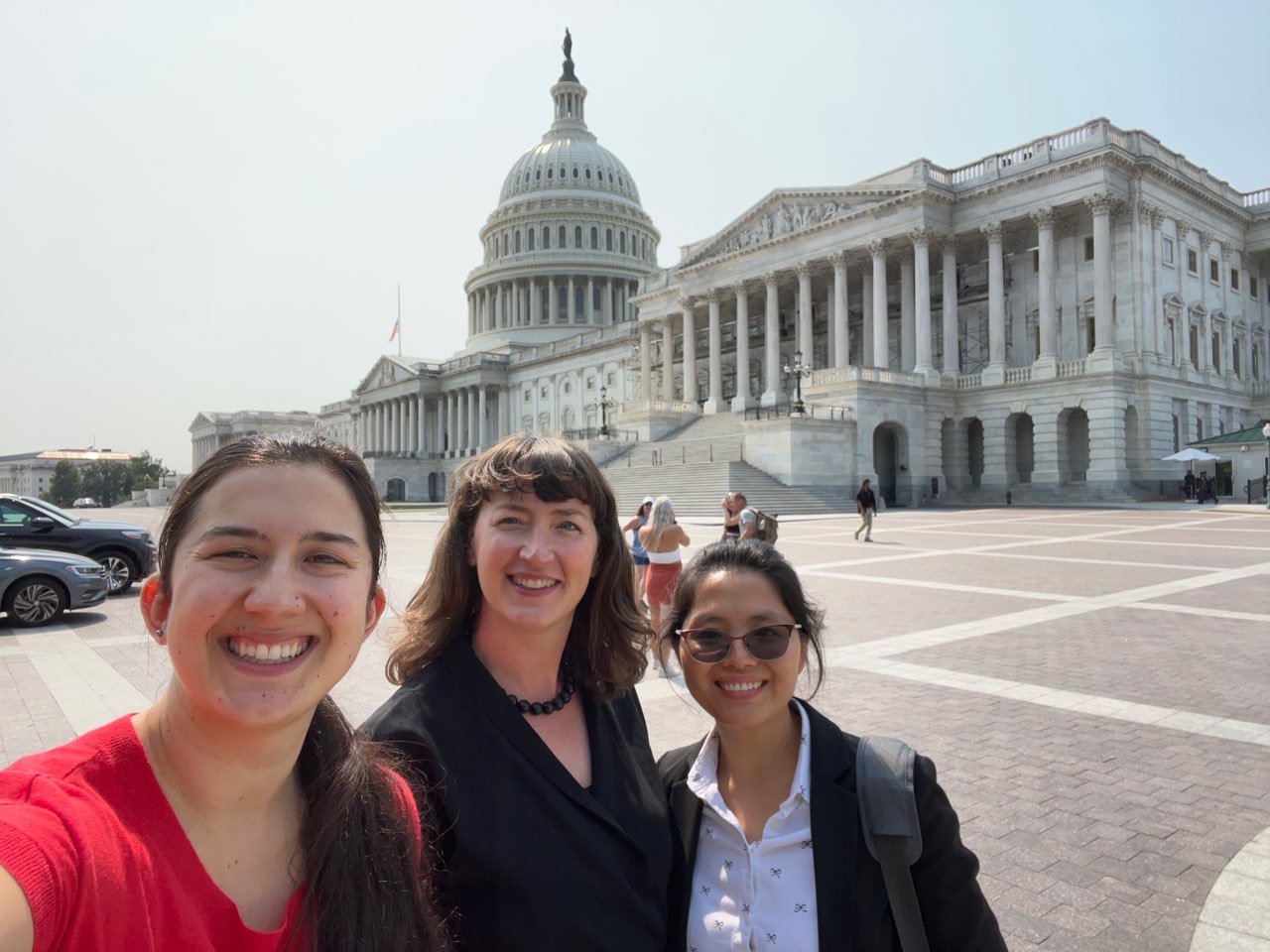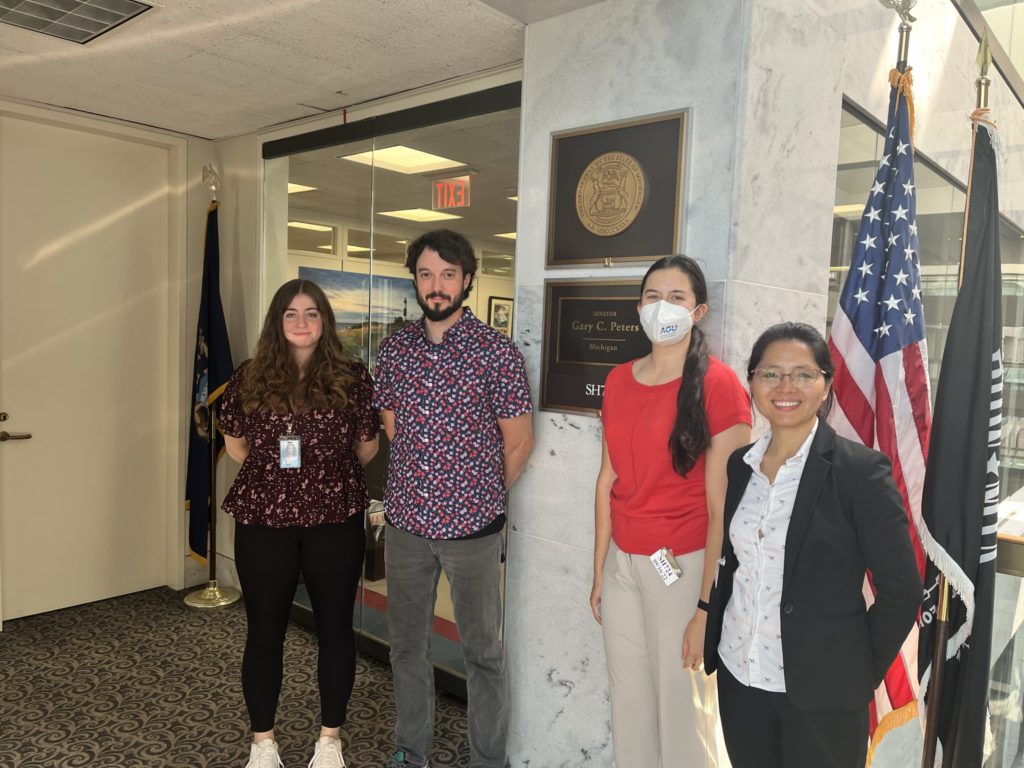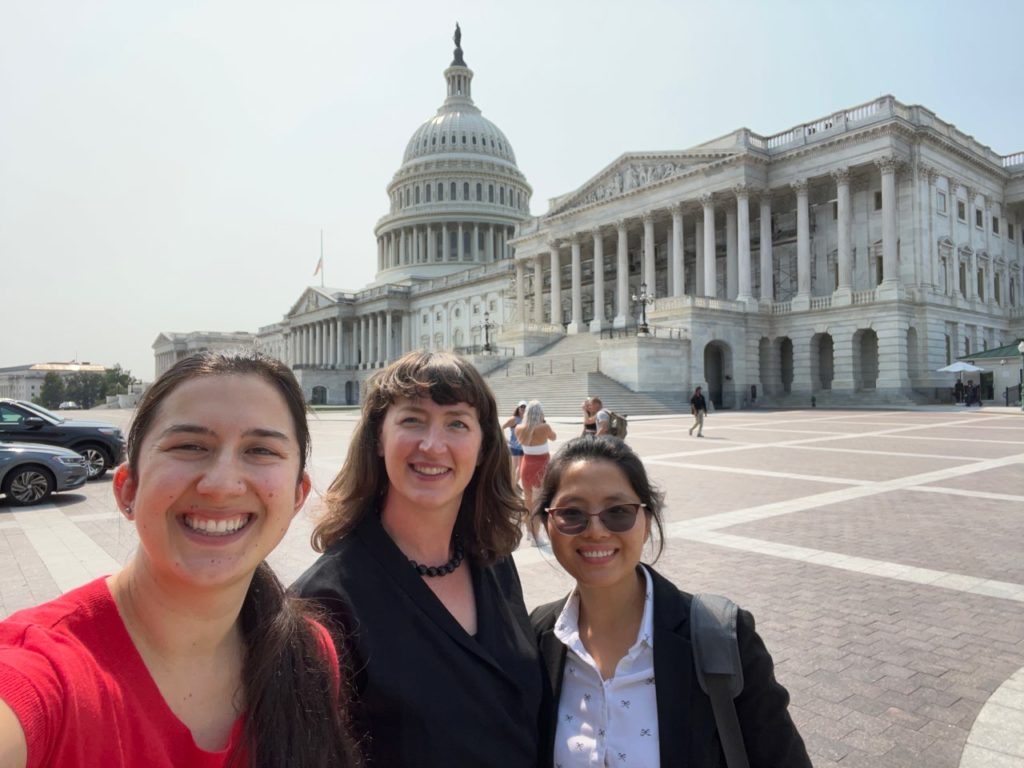
Student View: Advocating for the Geosciences on Capitol Hill
Graduate student Natasha Dacic attended a science policy workshop in Washington, D.C., to speak with legislators about the importance of Earth science research. She shared her experience.

Graduate student Natasha Dacic attended a science policy workshop in Washington, D.C., to speak with legislators about the importance of Earth science research. She shared her experience.
Geoscientists know how important funding is for their research careers – it is their lifeline.
Many factors come into play for an agency to fund a research proposal but up the ladder, Congress decides how much money that agency will have for the fiscal year. Every fiscal year, the President submits a federal budget to Congress for consideration. Currently, the start of the 2023 fiscal year is right around the corner and the Senate has passed zero out of 12 funding appropriations. With such a short timeframe, funding advocacy is critical, especially for the geosciences.

I participated in the AGU Congressional Visits Day where I travelled to Washington, D.C. for a 2-day science policy workshop and met with legislators (and/or their staff) to talk about the importance of geoscience research. Day one of the workshop consisted of presentations about the policymaking process, how to meet with Congress members, how to shape our “ask”, followed by breakout sessions to practice our messages. Day two consisted of meeting with House and Senate committee members to learn more about their work and Congressional Visits where we met with Senate teams based on our geographical locations. I participated on the Michigan/Wisconsin team alongside Dr. Xia Zhu-Barker (University of Wisconsin-Madison) and our AGU chaperone, Dr. Michèle LaVigne, who helped us prepare. The meetings were 15-20 minutes long with us asking for a specific appropriated amount (i.e. $11 billion for NSF, $700 million for USDA AFRI) followed by how geoscience funding has impacted us and our careers. As an NSF Graduate Research Fellow, I spoke about how the funding has given me more flexibility in pursuing additional research projects as well as exploring science policy opportunities.
That was that!
Being in those meetings showed me how important it is to get involved as a scientist. My work goes beyond publications and grant writing. Advocating for science and science communication is critical to bridging the knowledge gap between science and policymaking. After being able to go through this experience, I now know that I am able to schedule these types of meetings on my own (or with colleagues) at both the state and federal level and will continue to do so.
For those interested in advocating for science, AGU has a page with resources.
Written by Natasha Dacic, Ph.D. Candidate
University of Michigan Department of Climate and Space Sciences and Engineering
